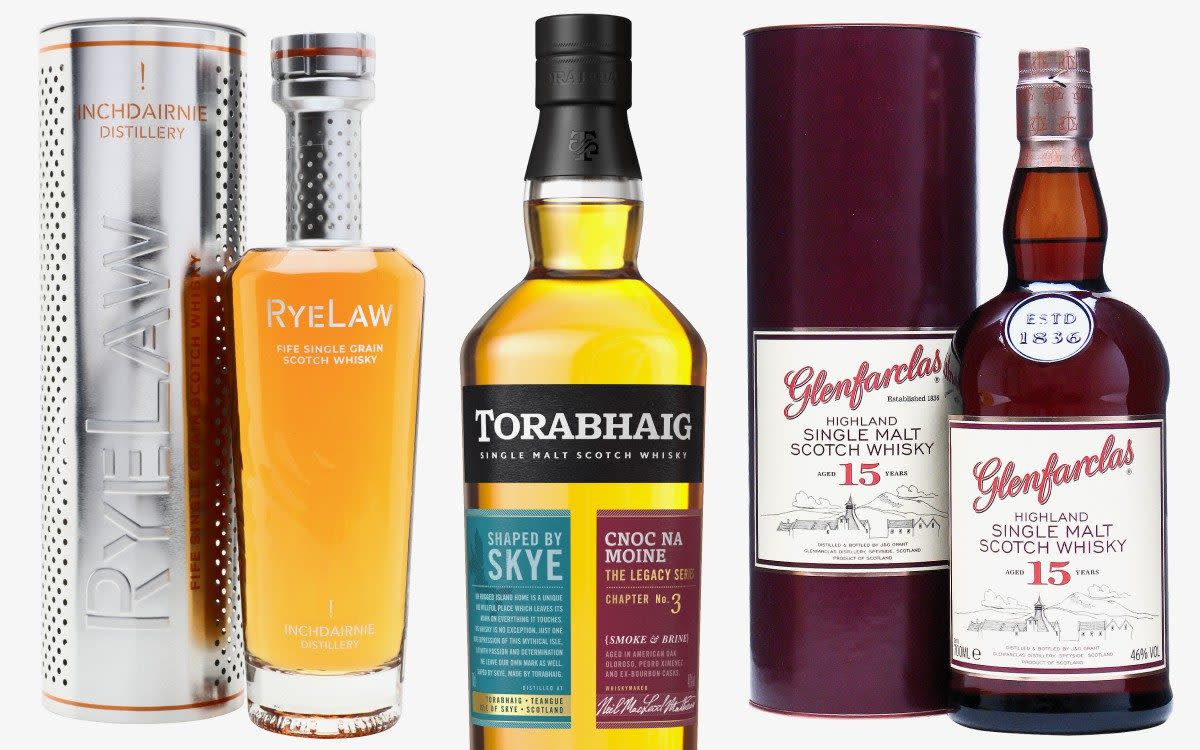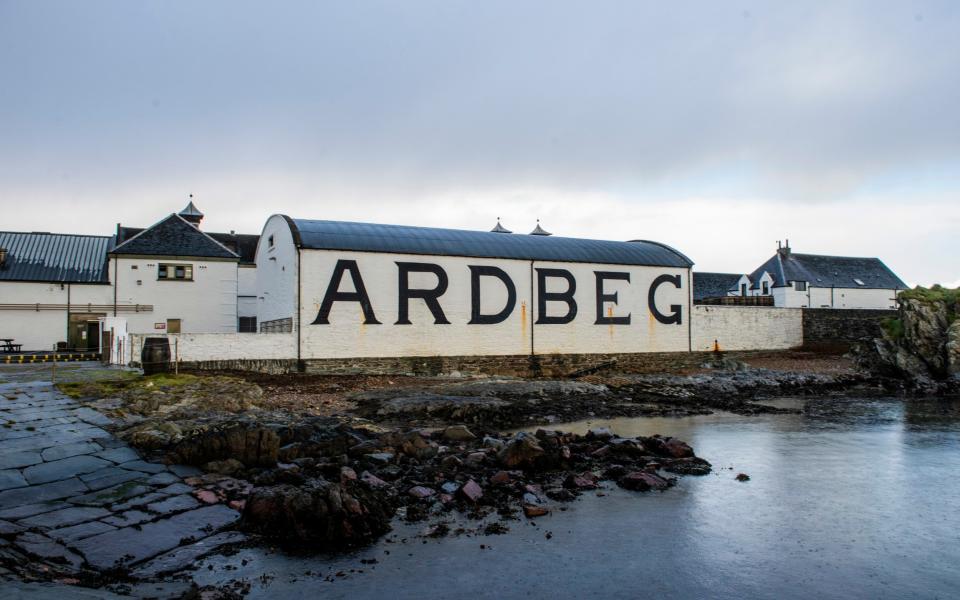Is English whisky really better than Scotch? Six of the best, tried and tested

When Norfolk’s Sherry Cask Matured whisky, produced by The English Distillery, was recently declared to be the best single malt on the planet at the World Whiskies Awards – beating global entries including the finest Scotch to the title – it might have surprised some, but for whisky connoisseurs it proved less astonishing. A crop of quality English whisky distillers have been flexing their muscles for a while now and this recent success is sure to be repeated by others.
Even so, taste is subjective, so if you want to find the dram for you try these head-to-head battles between bottles from either side of the border.
Sherry cask whisky
Aged in European oak barrels that once held sherry, to deliver a rich and fruity spirit
England
The English Distillery Sherry Cask Matured
46%; englishwhisky.co.uk, £59 for 70cl; thewhiskyexchange.com, £59.25

Big, beautiful banana notes on the nose, with a hint of smoke and spice. The subtle smoke carries through on the palate with an oily mouthfeel and warm spice on the finish. Produced by England’s oldest registered whisky distillery, this rightly impressed the judges at the World Whiskies Awards.
Scotland
Glenfarclas Highland 15 Year Old
46%; Majestic, £70 for 70cl

I’m playing it safe by pitting a single-malt, connoisseur crowd-pleaser against The English Distillery’s sherry cask, but there’s a good reason it’s a favourite. Expect winter fruits, fudge and cinnamon to come from a first sniff. It’s buttery on the tongue, delivering a complex sherry sweetness and the merest suggestion of smoke, and Christmas-cake spice lingers at the end. This Speyside classic ticks all the flavour boxes and is hard to beat.
Winner: Scotland
Smoky whisky
Big, bold spirits shaped by the infusion of peat smoke during the malting process
England
White Peak Distillery Wire Works Caduro
46.8%; whitepeakdistillery.co.uk, £60 for 70cl

The smoke here, which is light but still lingers, is joined by scents of ginger and vanilla; it’s a rich sip and there’s even a chocolate sweetness with a hint of orange. I love this distillery, which only opened its doors in 2016, so there is plenty to come. It will win things soon.
Scotland
Torabhaig Cnoc Na Moine
46%; torabhaig.com, £58 for 70cl

From an exciting Scottish newcomer based in Skye (as talented as any emerging craft distillery from the wider world of whisky), this delivers beautifully balanced smokiness with thick honey and citrus aromas. These convert to gentle, sweet flavours with a slight oiliness, while the oloroso casks the spirit has matured in deliver another dimension of spice.
Winner: Scotland
Grain whisky
Whiskies made using a grain other than malted barley, the standard for single-malt Scotch
England
The Oxford Artisan Distillery Oxford Rye Heritage Grains Batch 2, 2017
47.4%; thewhiskyexchange.com, £96.75 for 70cl

There’s something herbal on the nose, with light fruits but also nutty, while to drink it’s surprisingly rich with a baked flavour. I get ginger, raisins and bread pudding (yum), which stays with you with a mild tobacco finish. This one takes the tastebuds in all sorts of directions; a lovely liquid from the Oxford distillery which grows its own ancient grains.
Scotland
InchDairnie Distillery RyeLaw
46.3%; thewhiskyexchange.com, £109 for 70cl

Toffee, oak, vanilla and cherry notes develop into lovely spices (notably cinnamon) with orange and vanilla. These stick around but it’s also smooth and biscuity thanks to malted barley.
Winner: England
The rise of English whisky
So, since one of them has been crowned the world’s Best Single Malt, we can assume all English whisky is better than Scottish whisky, right? Wrong. While some readers might revel in an opportunity to rile the Scots, the truth is English whisky is in its infancy – it is incredibly interesting already, but the industry (which boasts nearly 50 distillers) is still evolving.
When The English Distillery was founded in Norfolk’s Breckland region by the Nelstop family in 2006 it became the first new whisky distillery south of the border for 100 years, and its pioneering success paved the way for others such as The Lakes Distillery, Cotswolds Distillery, White Peak, Copper Rivet and The Oxford Artisan Distillery, all of whom have been brave experimenting with grain, fermentation and different wood maturation.
But look to Scotland (with nearer 150 distilleries and new, ground-breaking openings happening regularly) and it’s obvious that centuries of experience, financial stability and access to great wood for maturation, ensures the Scottish whisky industry will remain in rude health for some time.

What the rise of English whisky (and the Nelstops’ Sherry Cask in particular) does prove, though, is that enthusiasm paired with skill and a desire to innovate will produce a stunning spirit that well deserves global attention. Rather than get bogged down in beating the Scots at their own game, English distillers have a freedom to innovate and they complement core house expressions with thought-provoking limited releases and techniques – not least The Lakes Distillery whose élevage (maturing) process involves painstaking monitoring and adapting of flavour. This will certainly win them whisky fans.
These experiments can only take them so far, however, as Dawn Davies, head buyer at The Whisky Exchange, warns. “The new distilleries must be careful not to lose focus on their core range just to drive sales,” she advises, and should avoid “producing lots of releases which sell well the first time but then start to dip.” Ultimately, we whisky lovers are still lured in by the classics: “We are seeing a small growth in sales of English whisky, both with English and Scotch whisky drinkers,” Davies explains, and while “people are starting to buy more rye whiskies,” it is “the single malt and heavy sherry examples which get most traction, as in Scotland – everyone is all about sherry.”
There’s still a way to go, then, but reassuringly there’s exceptional whisky coming out of English distilleries right now. Coupled with the great Scots, with their heroic highlanders like Deanston, perfectly peated Lagavulins or solid Speyside mainstays like Macallan, it means the real winner here is the whisky drinker.

